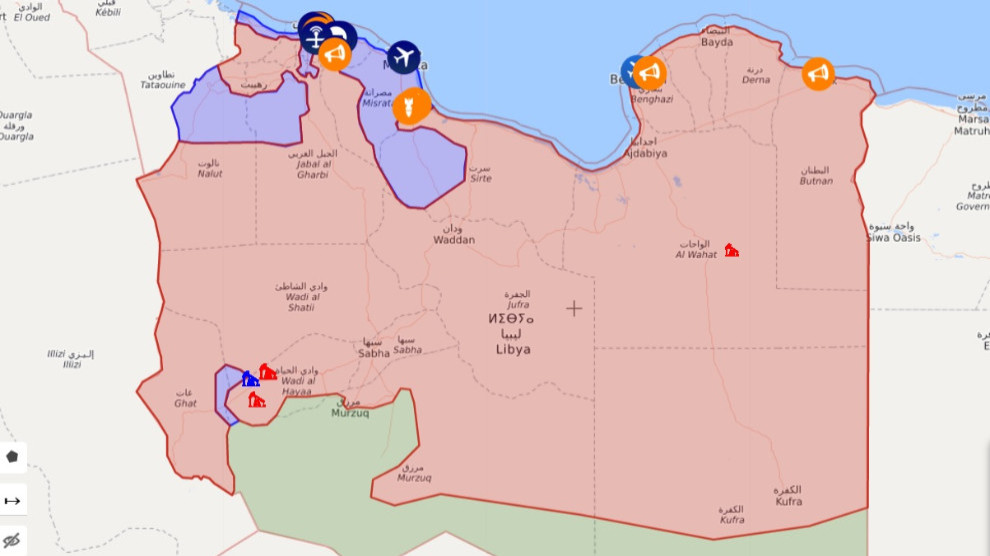Turkey tries to revive the New Ottoman dream in Libya
Clashes intensified in Libya in the past year following the inclusion of foreign regional and international powers. The country split into two after the fall of Muammer Gheddafi in 2011.
Clashes intensified in Libya in the past year following the inclusion of foreign regional and international powers. The country split into two after the fall of Muammer Gheddafi in 2011.

On one hand is Libyan National Army (LNA), under the command of Tobruk-based general Caliph Khafter, which controls nearly 80 percent of the country's territory.
On the other hand is the National Consensus Government (NCG) headed by Faayiz El Serrac, headed by Tripoli-based Ihvan Muslim (Muslim Brothers).
While many countries such as Russia, Saudi Arabia, United Arab Emirates, Egypt and France support the LNA, countries such as the Turkish state, Qatar, Italy and the UK support the NCG.
The Turkish state, pursuing Ottoman dreams, claims rights in Libya, the last land lost in North Africa with the Uşi agreement signed in 1911.
The Turkish state is sending weapons to Lybia every day, despite the UN's arms embargo. The Turkish army's UAVs and SIHAs are also actively involved in the war.
In addition, the Turkish state, which has sent troops to Lybia, has taken a lead in the war. In addition, it sent more than 5,000 mercenaries (ISIS, Al Nusra and İhvan mercenaries) from Syria to the Lybia.
Despite all the efforts made by the Turkish state, the Hafter forces, which continued their progress throughout 2019, managed to cornered Serrac's forces in Tripoli and took control of many regions.
As the Secretary-General of the United Nations called for cease-fire all over the world following the coronavirus pandemic, and given that the whole world is focused on fighting the virus, the Turkish state launched a comprehensive wave of attack against the Khafter forces in recent weeks.
The western coastline of Tripoli and some settlements on the border of Tunisia fell into the hands of the NCG forces. In particular, the capture of Sabrata and Surman was important as a land connection with Tunisia was established again.
However, the dream of "New Ottomanism" is not going well for the Turkish state which is losing men every day.
Muxtar Cedal, professor at Libya University states that NCG locations are not a "surprise".
Modern history professor Cedal said: "The NCG aims at taking control of human trafficking and oil routes by capturing these regions on the border line."
Egyptian journalist and Libyan Research Specialist Ebdulhadî Rebi states that the war in Libya in the cities of Tripoli and Misrata is different than the war in other parts of the country. "These two cities are bigger than other cities."
Professor Muxtar Cedal notes that the most strategic place for LNA is Tarhuna, located about 100 km southeast of Tripoli. "The forces there are well resisting. We may also get surprise news in the coming days," says Cedal.
In the war in Libya, there are two forces in different positions, as in Syria: Russia and the Turkish state. The conflicts in Libya and Idlib in the past year have increased and decreased.
When conflicts intensified in Idlib in February, Turkish President Tayyip Erdogan targeted the forces of Russia in the region.
The Russian media have put the mercenaries that the Turkish state transferred from Idlib to Libya on their agenda. Russian Foreign Minister Sergey Lavrov said: "We will not allow the opening of a new area for terrorists," referring to the mercenaries sent by the Turkish state to Libya..
The Turkish army has thrown "Surrender" leaflets in Arabic and English from the air in Tarhuna.